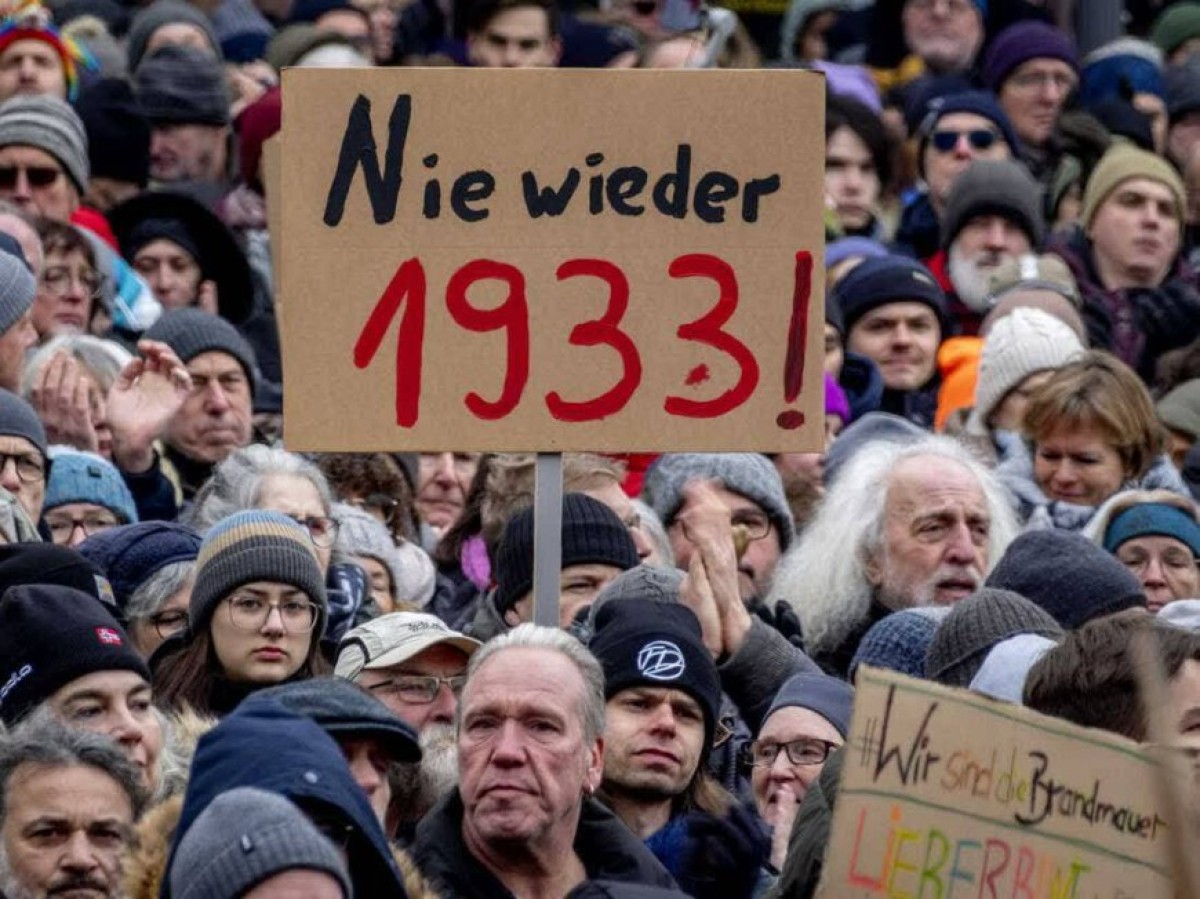 295
295
Germany at a Crossroads: The Rise of the Far Right and the Leadership Void
Germany at a Crossroads: The Rise of the Far Right and the Leadership Void
Today, Germany finds itself embroiled in a fervent wave of sociopolitical activism. Having recently staged strikes to voice their discontent with the government's actions, the Germans have now taken to the streets in a resolute stand against the extreme right. This surge in civic engagement portends that 2024 may well become a year of widespread political tensions throughout this industrially robust nation as German citizens strive to fill the void left by a dearth of effective leadership.
By: A. Mahdavi
It is impossible to reflect on Germany's current predicament without acknowledging the heritage of Chancellor Angela Merkel, a formidable figure who has both inspired and propelled Germany's ascendancy within the international system. Merkel's leadership, coupled with her adept handling of crises, earned her the trust and admiration of her compatriots. However, with Merkel's departure from the political stage, Germany now grapples with the daunting vacuum left by the absence of a powerful and, perhaps equally crucially, a popular leader.
According to observers, more Germans harbor reservations concerning the coalition administration led by Olaf Scholz, arguing that it fails to fully satisfy their expectations. This disquietude, coupled with a pervasive fear of descending into socioeconomic chaos, has manifested in the recent rise of political activism among the populace. In the past few days, Germany has witnessed a series of massive demonstrations, the likes of which have seldom been observed. What distinguishes these recent protests from their predecessors is the unprecedented scale of their dissemination across different German cities and the wide-ranging participation they have elicited.
With an astonishing turnout of over 50,000 individuals in Hamburg and more than 35,000 in Nuremberg, the cumulative number of protesters has surpassed one million, a figure that significantly surpassed even the highest expectations of German law enforcement agencies. These demonstrations have been primarily directed against the proposed expulsion of immigrants from Germany, a contentious issue that has galvanized far-right political factions, as representatives from Alternative for Germany (AfD), neo-Nazi groups, and members of the center-right Christian Democratic Union of Germany (CDU) convened at a hotel near Potsdam, a site historically associated with the formulation of the "Final Solution" during World War II. The focus of their deliberations was the "immigration" plan proposed by Austrian far-right activist Martin Sellner. According to CORRECTIV magazine, this proposal outlined the deportation not only of asylum seekers with legal residency but also of German citizens who fail to assimilate into the German culture. The magnitude of these protests underscores the deep-seated apprehension of the German people that their nation may be regressing once again towards the dark specter of its fascist past.
But Germany, as the number one economic powerhouse in Europe, finds itself confronting arduous circumstances, as the nation is in dire need of a substantial labor force to propel its economic engine. Consequently, should Berlin veer towards the extreme right, it will inevitably confront a host of formidable financial challenges in the months ahead.
Regrettably, the growth of the extreme right movement is not limited to Germany alone; it has permeated numerous European nations. The AfD party, with its burgeoning support base, has emerged as a significant force within Germany's political landscape. Yet, this party now finds itself confronted with a crucial decision as the European Parliament elections loom large. It must choose between fostering societal polarization or retreating from the political arena. Presently, the AfD appears to have opted for the latter, owing to mounting political pressure exerted by its rivals. However, one cannot discount the possibility that, should the AfD and its allies remain confident in their popular support base, they may yet abandon their current passive posture. To preserve their constituency and achieve their overarching objectives, the extreme right movement has demonstrated a willingness to navigate the turbulent waters of economic hardships, perceiving them as a valuable opportunity to advance their agenda.
Germany, however, presents a unique context for the right-wing, as the nation relies heavily on immigrant labor. This reality necessitates a delicate balancing act for In the coming months, Germans will confront a momentous juncture, wherein they will determine whether they possess the fortitude to surmount this crisis or risk succumbing to the perils of political fragmentation.
Germany's future trajectory will be watched by the world with bated breath, cognizant of the profound implications that its decisions hold, not only for its own future but also for the broader European Union.
 295
295
Comment
Post a comment for this article